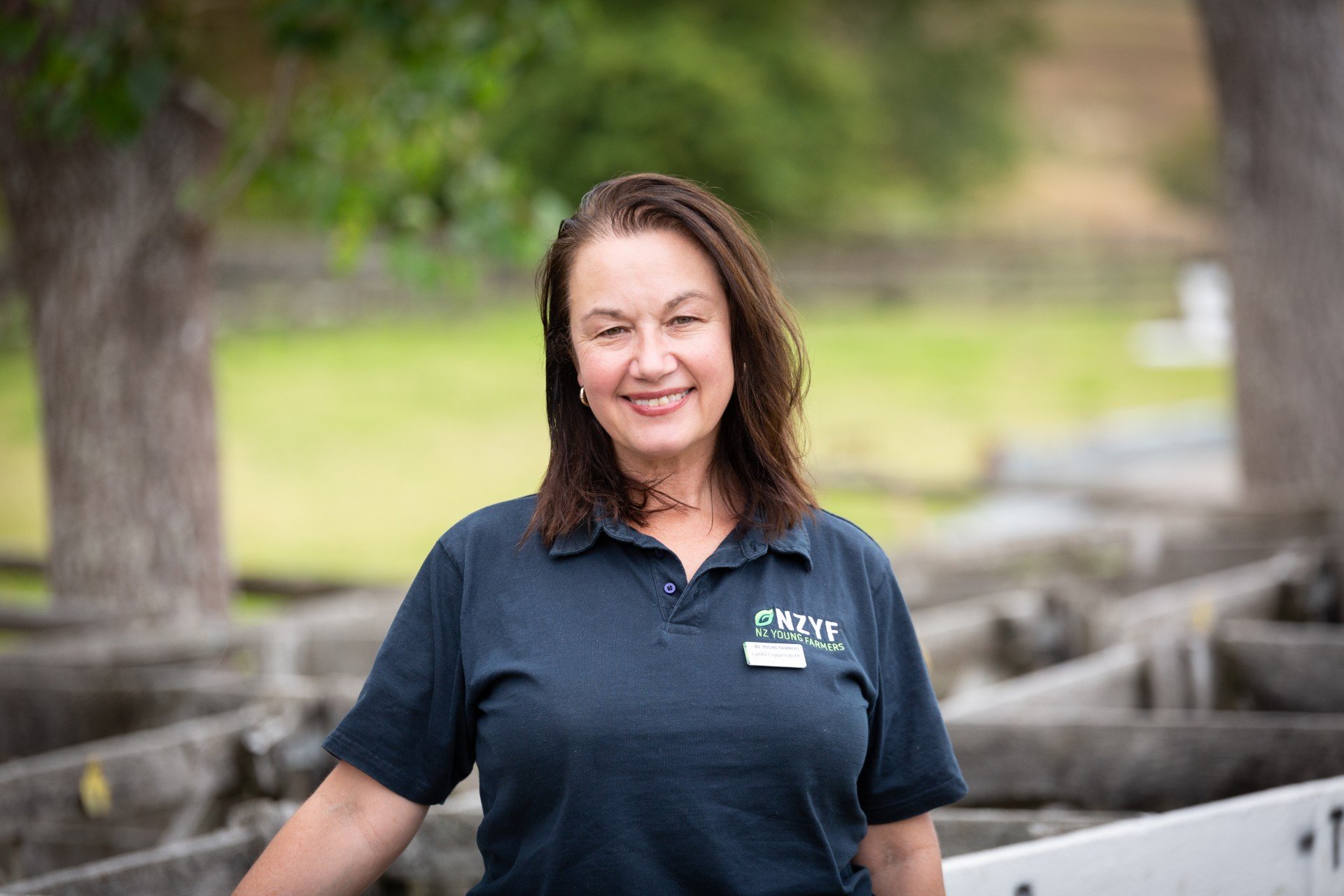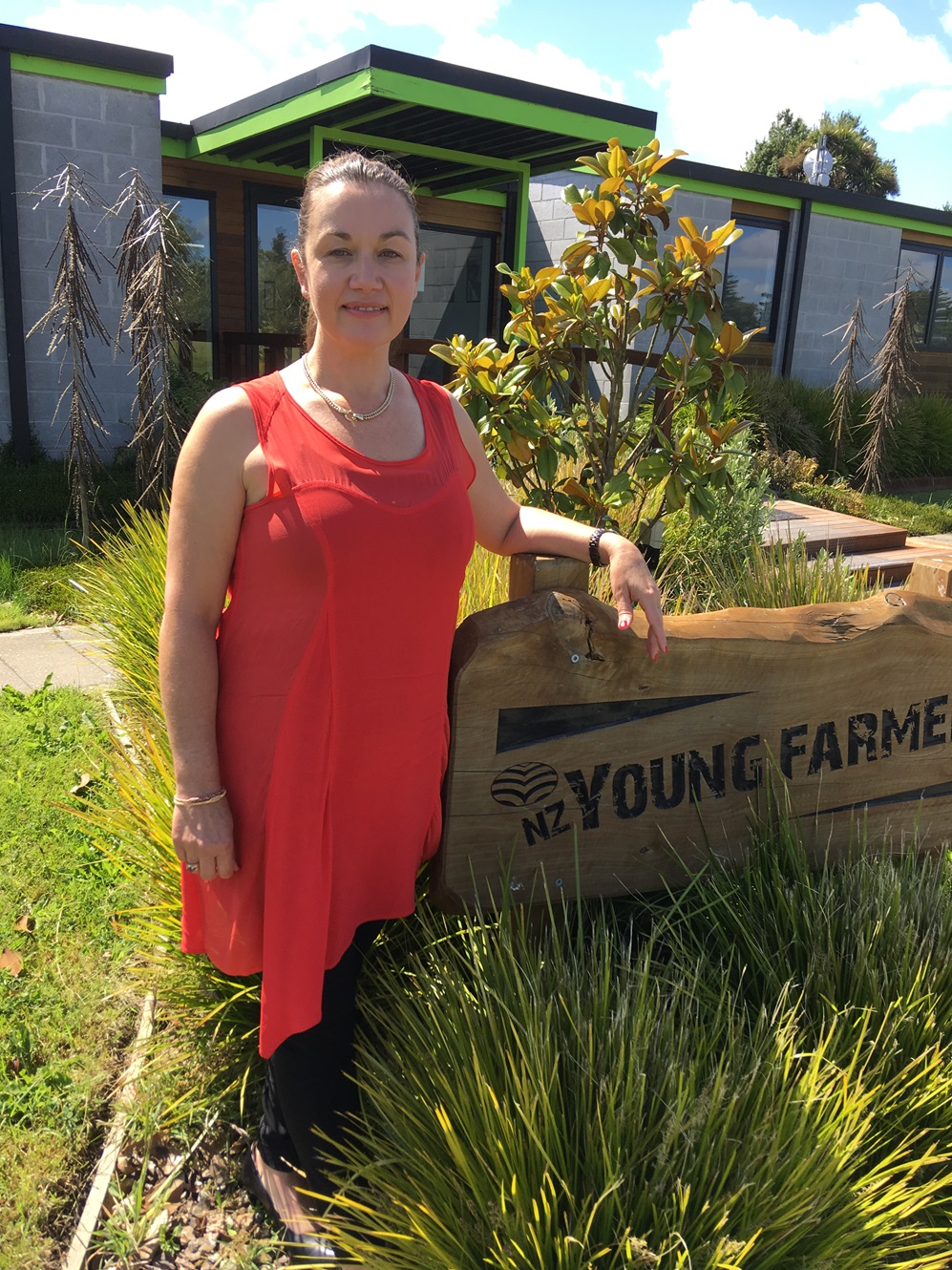
Chief exec moving on from NZYF
The ongoing challenge of finding funding for the nation’s young farmers will remain a poser for the next chief executive, Tim Cronshaw writes.
Christchurch’s Lynda Coppersmith is looking at her options after announcing she will stand down as chief executive of New Zealand Young Farmers (NZYF) in July.
The first woman to lead the organisation will call it a day at the end of the Young Farmer of the Year contest’s grand final in Invercargill.
Her tenure coincided with Covid-19 restrictions when the regional and national competition had to be made online, and changes to government funding forced the organisation to work smarter.
Ms Coppersmith said it was a difficult decision to bring her involvement to an end as she was passionate about young farmers and their organisation.
"I love what it stands for and love these young people which I work with and deal with every day and obviously love the contest which is such a good celebration. But it’s been six and a-half years and it’s not an easy job. The thing about Young Farmers is we are an old legacy organisation which everyone has a huge amount of respect and fondness for and no-one wants to see go away, but trying to survive is financially quite challenging."
She said much of her work was trying to change a 100-year-old membership organisation which did a lot of good for members and the sector into a financially sustainable membership organisation.
"We haven’t solved that one yet. We are definitely on the pathway to doing it, but it’s quite tiring ... You spend a lot of time on that rather than delivering great value to members. I’m a firm believer that turnover of CEOs is a good thing because it brings in new thinking.
"I’ve taken it to a certain point for someone else to come in with new ideas and a different way of looking at things and that can only benefit the organisation."
NZYF’s funding model relies on sponsorship as membership fees are unable to cover costs.
Most of the contest sponsorship goes to the costs of running seven regional finals and a grand final.
Outside of the competition, the organisation supported the club network and carried the inevitable costs of compliance, health and safety which today’s incorporated societies must meet.
A strong 10-person office was needed to support the continual incoming and outgoing flow of young members.
"One of the unique things about Young Farmers is our membership moves through the organisation and then goes away. We have a lot of young people that come in and they learn a lot about leadership and running clubs and doing great things within their clubs and then they age out and we have to train a whole new bunch."
She wondered if more use could be made of Young Farmers alumni to retain their leadership and club skill sets. That’s for the next helmsman or woman to explore.
During her rein Young Farmers was successful in bringing in new sponsorship including Milwaukee and Woolworths as well as retaining existing sponsors.
Attracting new sponsors and negotiating with existing sponsors each year was challenging in the current environment and this was being experienced by other organisations.
Young Farmers was controlling its costs and running the organisation as efficiently as it could, she said.
Until last year the organisation was in a three-year $1.7 million programme of work funded by the Ministry of Primary Industries’ Sustainable Food and Fibre Futures (SFFF) fund towards becoming more financially sustainable.

The club network had been strengthened "substantially", but more work remains to comfortably pay all the bills.
Funding was reduced to a SFFF grant under $250,000 over two years to work on the membership base.
Board chairwoman Chloe Jones said Ms Coppersmith had led the successful implementation of the new digital platform for club management, as well as expanding its sponsorship base despite challenging market conditions, and achieving record-breaking participation in competitions.
"Lynda’s ability to navigate challenges while maintaining strong relationships with stakeholders, sponsors and members has strengthened NZYF’s foundation, ensuring its financial sustainability and connection to the food and fibres sector."
One of the most satisfying milestones had been more young women entering and reaching a high level in the competition.
Ms Coppersmith said it had been satisfying to see Emma Poole become the first women to win the grand final in 2023.
"That was one of my goals, to have a female winner on my watch and we hit it. There was a great representation this year by the girls. Often it’s a confidence thing and they just needed the confidence to know they can win.
"There are four in Waikato/Bay of Plenty so half of the contestants in that regional final were female and two in Stratford and we are seeing them come through at the lower end of the competition as well for the AgriKids and Junior Young Farmers."
For the first time, every regional final had at least one female contestant with women making up 25% of finalists.
She believed she was leaving the organisation on a rising plane, despite challenges.
Young Farmers provided a network so young people within their communities or moving to new homes could connect socially and develop a sense of belonging, she said.
"Young Farmers is unofficially one of the biggest dating clubs across the country and Young Farmers marriages happen all the time.
"They go to a quiz night or a club meeting and have a yarn and talk to people and they do look out for each other."
Before joining the national office she was a Christchurch-based senior account manager with accounting software company MYOB and previously worked for DairyNZ and Fonterra.
A return to the IT sector was unlikely unless it was agriculture focused.
"I’ve got a couple of irons in the fire so I can’t say much at the moment. Hopefully it will see me staying in the same sector.
"Potentially I might be a little bit worn out by the not-for-profitable thing and might go and do something in the commercial space for a while with a reliable source of revenue coming through the door every day."
Ms Coppersmith entered agriculture without a family connection as the Coppersmiths come from mining stock on the West Coast. Her great-grandfather was the last mine manager at Dennsiton Mine before it shut down.
She said agriculture was in her blood now and she would be happy to add value to another organisation in the sector at a senior executive level.

















